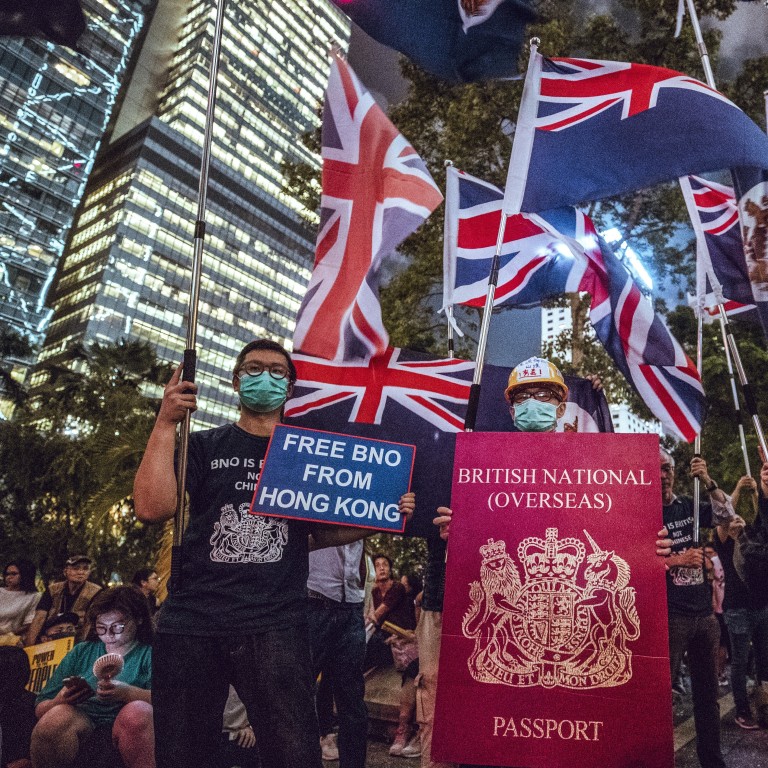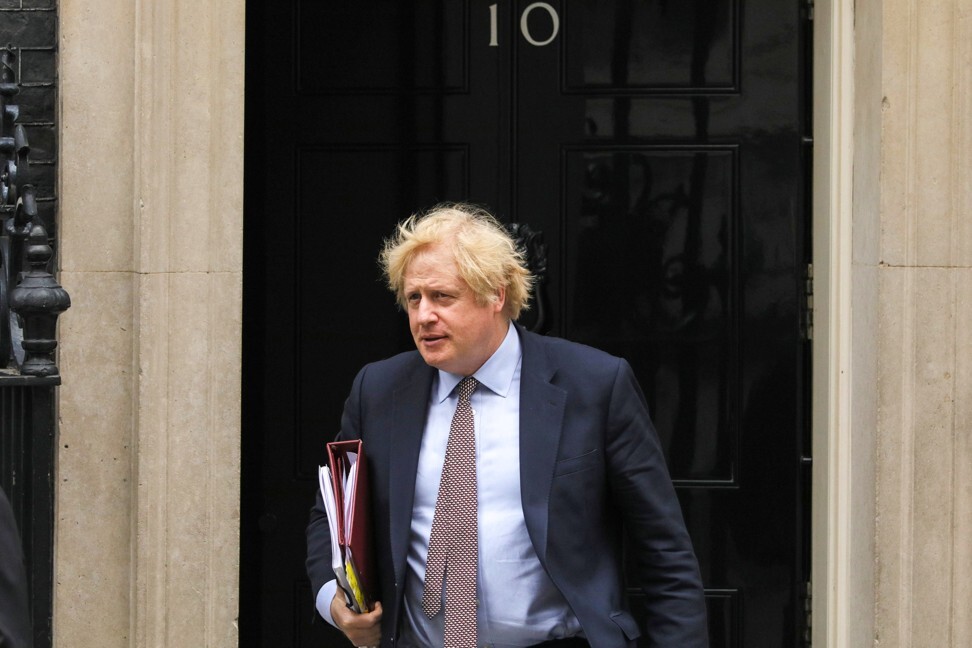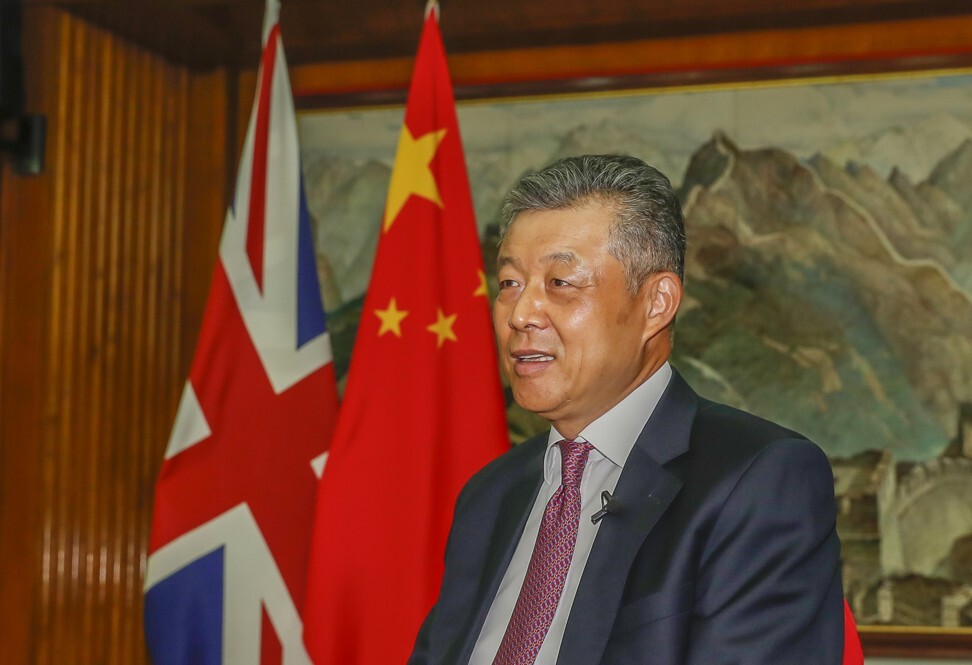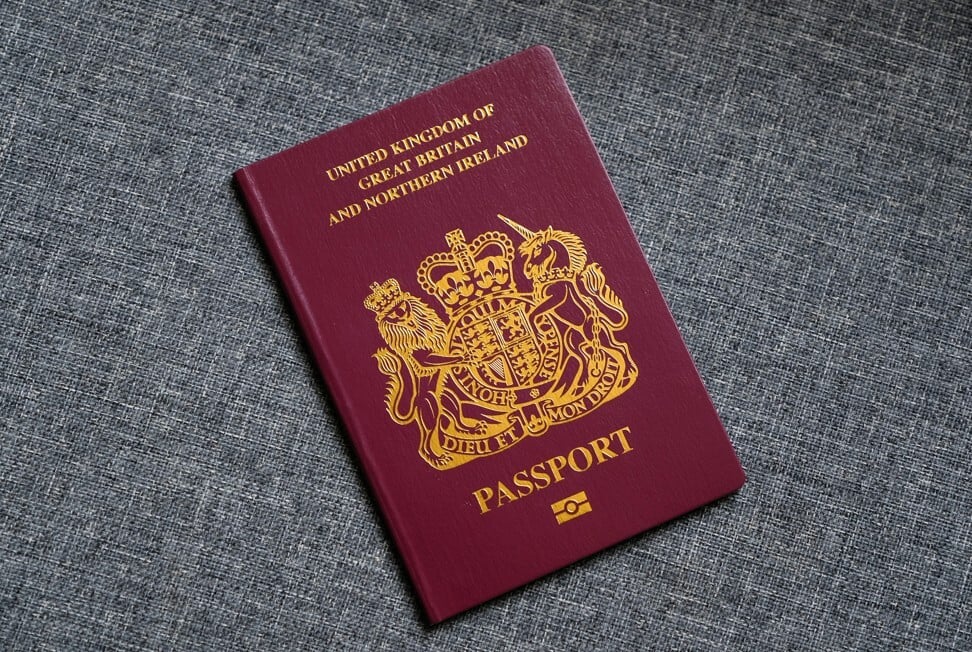
China firmly opposes Britain’s offer of residency rights to Hongkongers and warns of ‘corresponding measures’
- China’s embassy in Britain says offer of residency rights and path to citizenship violated 1984 memorandums of understanding regarding sovereignty over city
- Lawyer says Hongkongers can choose whether to apply for British citizenship but were never given a choice about Chinese citizenship
Chinese foreign ministry spokesman Zhao Lijian said the British moves violated the norms of international relations, and China reserved the right to take countermeasures. “The UK has to bear all the consequences of this,” he said.
The Chinese embassy in the United Kingdom also claimed on Thursday that Britain’s move violated 1984 memorandums of understanding exchanged between London and Beijing regarding the status of Hongkongers after sovereignty over the city was transferred to Beijing in 1997.
According to the memorandums, people in Hong Kong born before the 1997 handover are eligible for British National (Overseas) passports, a class of British citizenship that does not confer right of abode in Britain.

“If the British side insists on unilaterally changing the relevant practices, this not only violates its own position and commitments, but violates international law and the foundation of international relations,” the Chinese embassy spokesperson said, adding that Hong Kong citizens were Chinese nationals. “We firmly oppose this and reserve the right to take corresponding measures.”
The threat came after Britain’s Prime Minister Boris Johnson said millions of Hongkongers eligible for BN(O) passports would be able to resettle in Britain and have a pathway to British citizenship.
Johnson said the imposition of the national security law in Hong Kong late on Tuesday was a “clear and serious breach” by Beijing of the Sino-British Joint Declaration, signed in 1984, which settled how Hong Kong would be governed under Beijing’s rule.
Britain was among the vocal critics of the sweeping national security legislation – which bans acts of secession, subversion, terrorism and collusion with foreign forces, with a maximum penalty of life in prison – for eroding the city’s semi-autonomous status from Beijing and the freedoms of its people.
Beijing defended the law as necessary to safeguard Hong Kong’s stability and its ambassador to Britain, Liu Xiaoming, claimed that London had “grossly interfered in China’s internal affairs” with its comments on the legislation.

Craig Choy, a Hong Kong lawyer and campaigner on BN(O) issues, said he was thrilled to learn about the proposal for BN(O) holders to obtain British citizenship, which offered a “lifeboat” to Hong Kong people and those who had taken part in protests over the past year.
“As we all know, the Chinese government can pass whatever law they like and say whatever they like and, at the same time, the UK government can do that as well since nationality law is an internal matter,” he said.
Legal experts worry national security probes will bypass courts
“The UK government offered such a pathway for Hong Kong people, so at least Hong Kong people can choose whether they want to take it or not.
“But the Chinese citizenship, we have never had the option whether we want it or not – it was just imposed on us.”

But the insistence that Hong Kong citizens were Chinese nationals would have an impact on the process since China did not recognise dual citizenship, Choy said.
“Even if these BN(O) holders go to the UK and get citizenship, if they did not renounce the Chinese citizenship, then the Chinese government will still consider them as a Chinese citizen,” he said.
A 28-year-old Hongkonger with a BN(O) passport said she would follow the path to British citizenship in the wake of the national security law, which has made her fearful of joining protests in the city.
“The second I heard the national security law became effective, I wanted to jump on the first plane and leave, even though it means I will have to forever leave my birthplace,” said the woman, who declined to be named for fear of reprisals.
She said it was “good news” since it provided another option for Hongkongers seeking to leave the city, but lamented the fact that a lot of younger protesters born after 1997 would not be able to benefit.
“I’m luckier than a lot of people,” she said.

